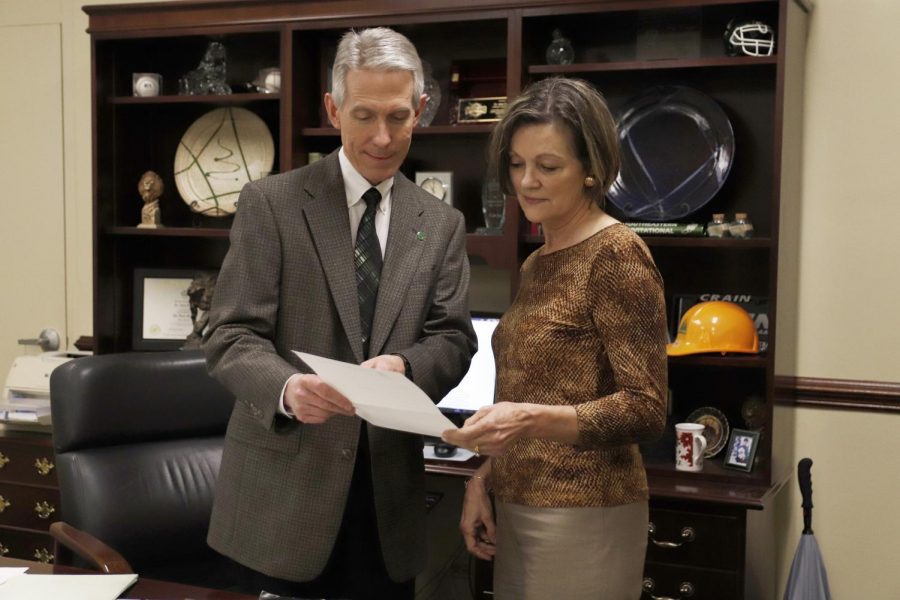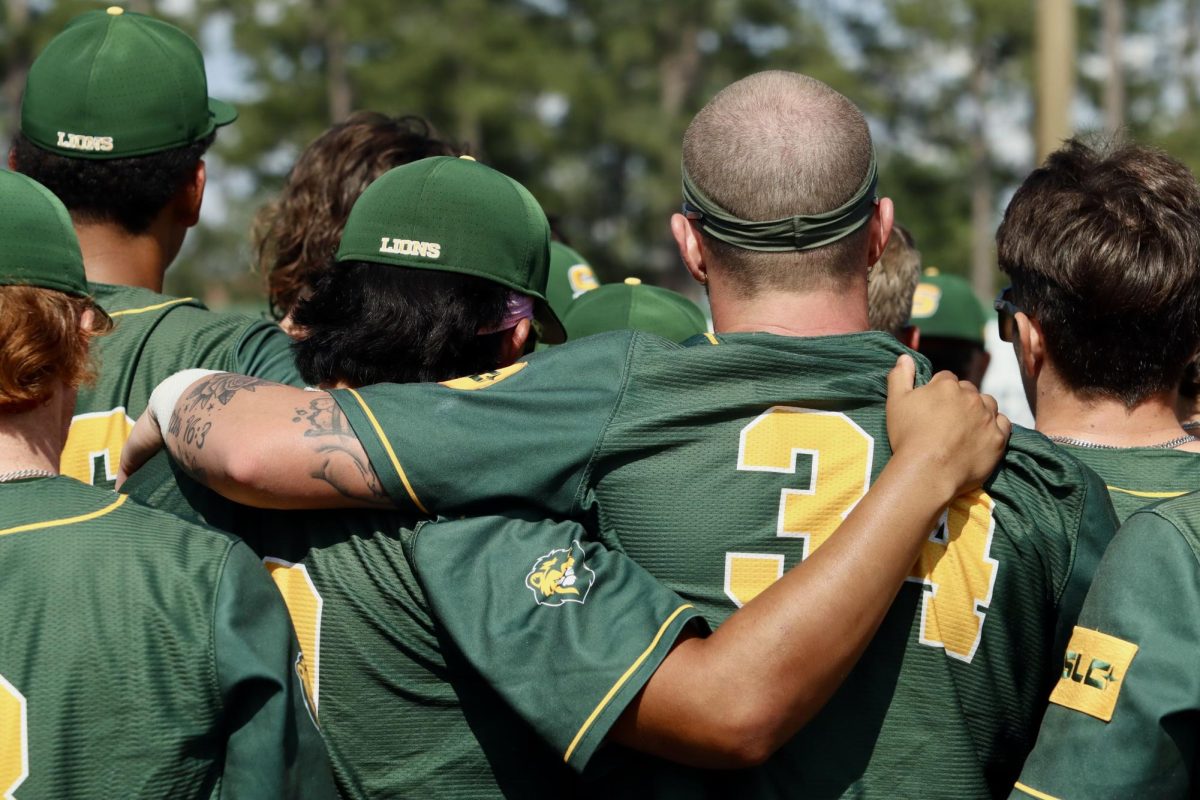The highest position someone can hold at the university is the position of president.
It seems like a president is mostly in charge of looking over everyone else and having the final say in a decision. So, what does the university president, Dr. John Crain, actually do?
All of the president’s duties are listed in the Chapter III, Section IV of the University of Louisiana System Board bylaws and rules.
Part A of this document lists the president’s roles at the university, which start out as a list of what they oversee while in office but the sixth point of the document shows that the president is more than a person at the top of a hill.
The president is responsible for “being the official medium of communication between the System President and all constituencies at the campus level.”
The position requires the president to be a good manager and mediator. Additionally, the president needs to be an ambassador for the university.
Crain is known to have said, “It’s all about the students,” and that is what his title reflects. The president is in charge of the “development of an effective public service program for both the campus and the community,” and the “development of an effective community relations program.”
The title comes with an undertone of service to others, but the president is offered some aid as well through the university’s benefit programs. The president, as well as all other employees, can participate in a variety of benefits including insurances, annuities, premium sheltering, credit unions and other miscellaneous rewards.
One benefit that is unique to the president is his mandatory residence in the president’s house located on campus. As stated in his roles, “the institution president must reside in such housing, where available, as a condition of employment.” The purpose is to ensure that the president is “readily available” to serve the university by attending events or meetings.
Some students agree with this rule.
“I think the president should live on campus because it will encourage other students to stay,” said Cassie Thomas, a senior health systems management major. “Southeastern is a commuter school and if the president doesn’t stay, why should they?”
Anna Crawford, a senior psychology major, also agreed.
“I think the president should be required to live on campus because I think it’s important for the president to be actively around students on campus,” said Crawford.
Not all students feel that it should be mandatory.
Kirstyn George, a junior biological sciences major said, “Many might think that he would be disconnected from the university by not being physically on the campus by living standards, but I think that if he is active within the Southeastern community, wherever he lays his head at night shouldn’t matter.”
For now, the president is required to live on campus. The president also receives monthly allowances for a car and phone during served terms.
For the full list of responsibilities and benefits, visit the online ULS board bylaws and rules.








